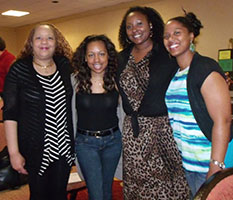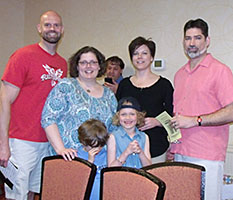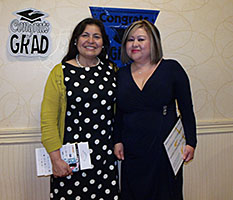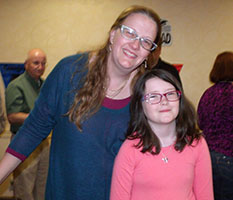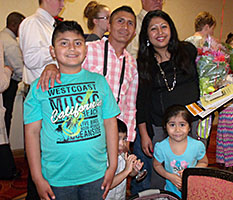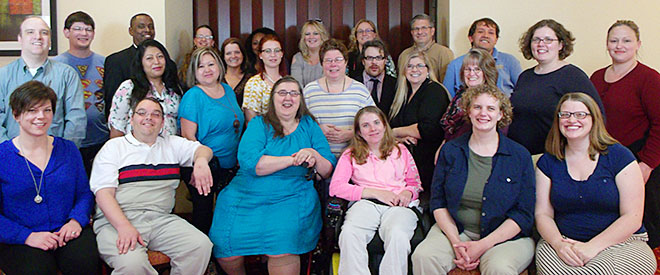Council-Sponsored Grant Activities: Partners in Policymaking®
Partners in Policymaking Class 32
Weekend 1 (September 26-27, 2014)
September 26-27, 2014 was kick off weekend for Class 32 Partners in Policymaking. Thirteen 13 self advocates and 16 parents learned about the history of disabilities, the Parent Movement, Independent Living Movement, and Self Advocacy Movement; heard from Partners graduates about the benefits of their personal experiences with Partners; and practiced some creativity exercises.
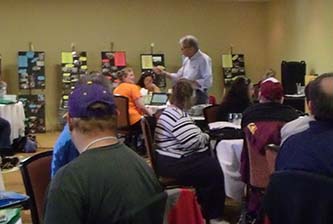
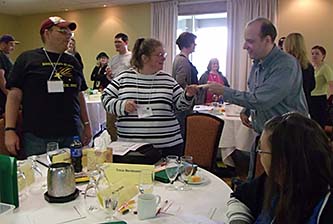
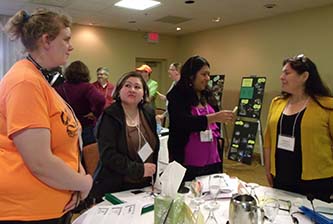
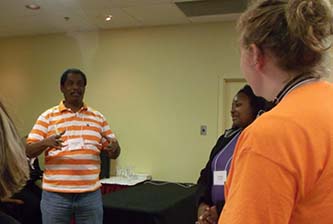
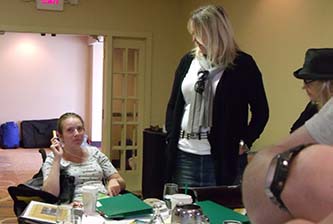
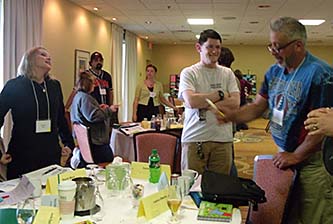
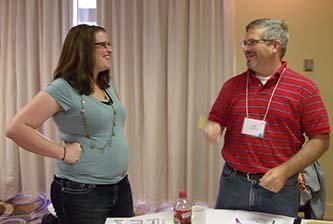
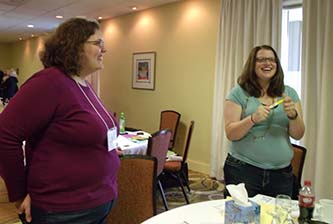
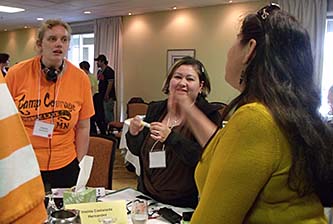
Weekend 2 (October 24-25, 2014)
October 24-25, 2014 was Inclusive Education weekend. Participants learned about effective practices and the components of inclusive education, emerging positive trends, and how the concepts of universal design and a blended curriculum can improve the educational experience for all students. In a series of roundtables, representatives with expertise in special education and post secondary education topics provided participants with a wealth of materials and resources. With new knowledge and skills for working through difficult education meetings, participants assumed some character roles and role played the process for getting to positive outcomes.
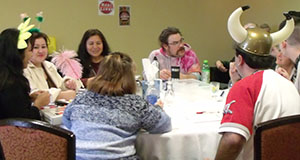
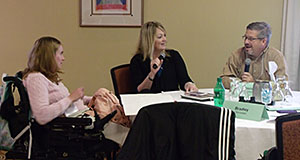
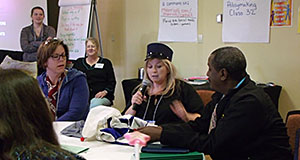
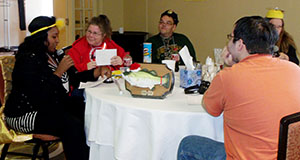
Weekend 3 (November 21-22, 2014)
November 21-22, 2014 provided an introduction to County Services, and the role and responsibilities of counties in delivering services to individuals with developmental disabilities and their families –eligibility for case management services and development of individual service plans, Medical Assistance (what is and isn't covered), services counties may provide and service availability, waiver services, and appeals. In small groups, participants created vision statements for the Year 2020; recalled critical aspects of their world at high school graduation time; and, using a bus as a metaphor, depicted the service delivery system based on their experiences. In a series of roundtables, participants shared their personal stories and addressed policy issues that can be barriers to full participation and inclusion in the community.
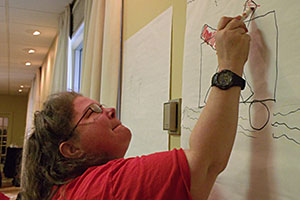
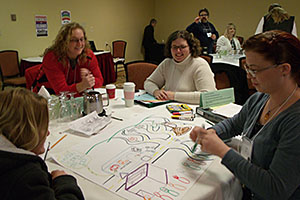
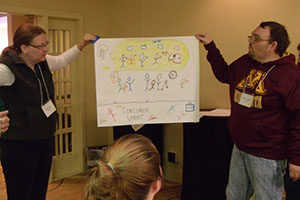
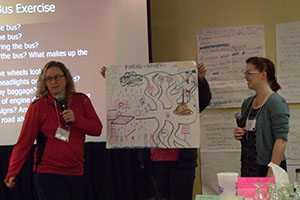
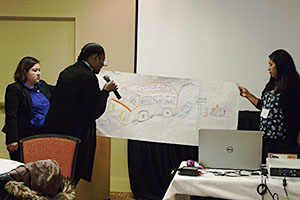
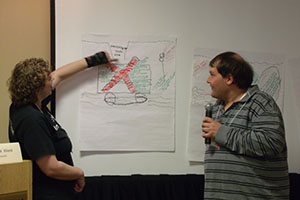
Weekend 4 (January 23-24, 2015)
January 23-24, 2015 addressed supported housing and customized employment. Participants learned about the factors that affect cost of living in different environments, ownership alternatives, and creative financing options. In the area of employment, participants shared some of their likes and dislikes, and the many components of a personal profile that can help individuals learn more about the type of work environment and type of job that might best match their interests, strengths, and abilities.
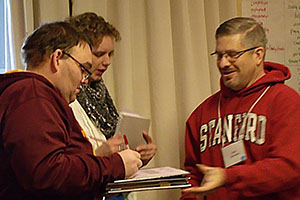
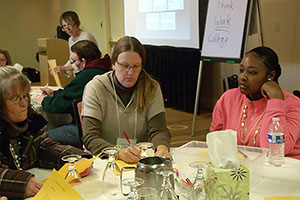
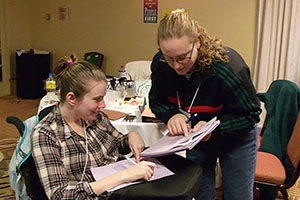
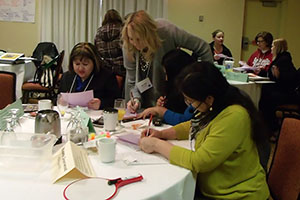
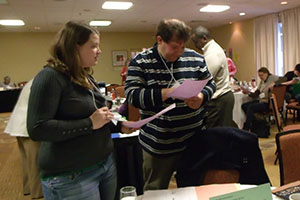
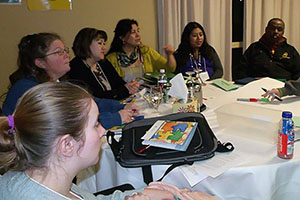
Weekend 5 (February 20-21, 2015)
February 20-21, 2015 focused on community organizing skills. Parliamentary procedure, rules that guide the course of meetings to assure that voices are heard, and decisions made in an orderly fashion; and the role of the media as a component for bring issues of concern to a larger audience were also covered.
Organizing around an issue brings into play a range of leadership skills and how they can be most effectively used in a variety of forums where issues of concern are addressed. The Department of Human Services rule hearing on positive behavior supports provided an opportunity for participants to share their experiences about restraint and seclusion, talk about the impact on individuals, and propose solutions in the form of positive behavior supports.
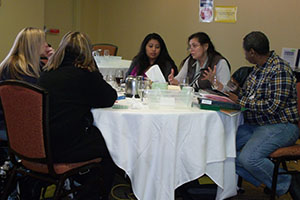
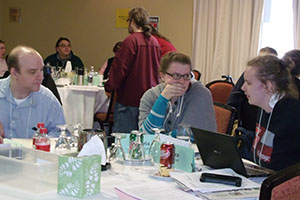
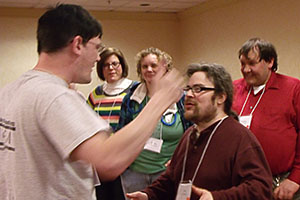
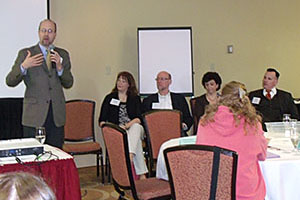
Weekend 6 (March 8-9, 2015)
March 8-9, 2015 gave participants the opportunity to utilize their leadership and communication skills at the state level of government. Participants learned about the bill making process itself, the sources of power from an individual and group perspective, and how to prepare for and present effective testimony at hearings. A legislative update on key issues affecting individuals with developmental disabilities and families, and an overview of the Governor's appointment process were also provided.
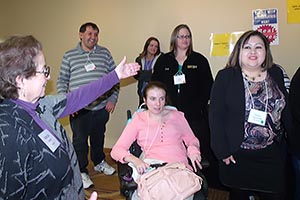
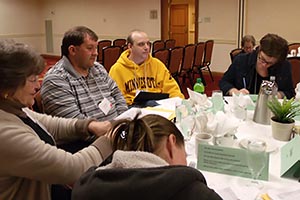
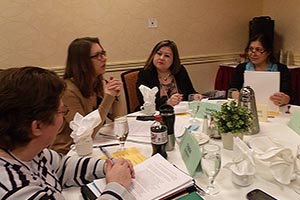
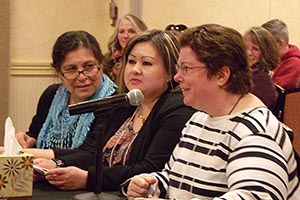
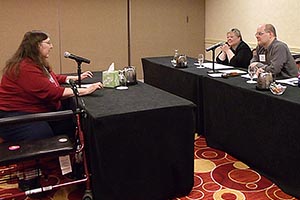
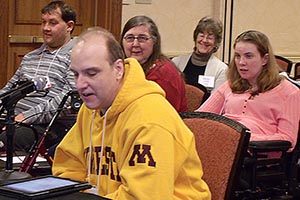
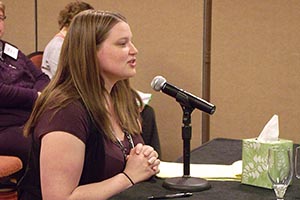
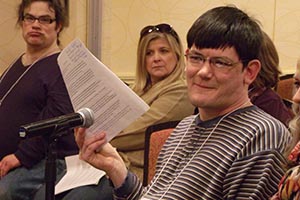
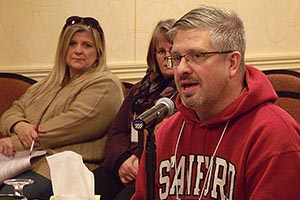
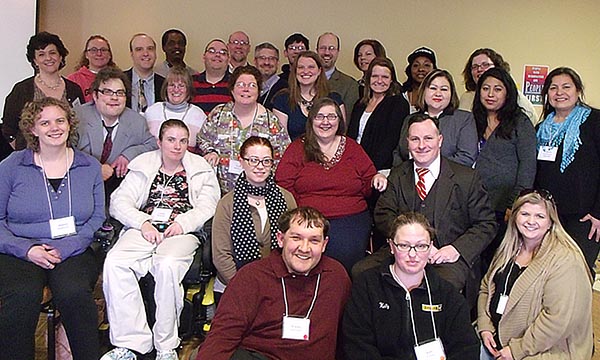
Weekend 7 (April 17-18, 2015)
April 17-18, 2015 gave participants another opportunity to strengthen their communication skills in meetings with staff from Minnesota's Congressional offices on issues of national concern including employment (the Workforce Innovation and Opportunity Act), Medicaid reform (block grants and health care costs), Social Security and SSI, and the use of restraints and seclusion in public schools. The Honorable Donovan Frank spoke about disability justice, the many avenues that he has been instrumental in pursuing to educate the legal profession about disability issues, and the role that self advocates have played in teaching him about rights from their perspective.
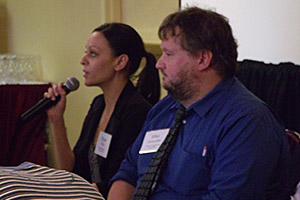
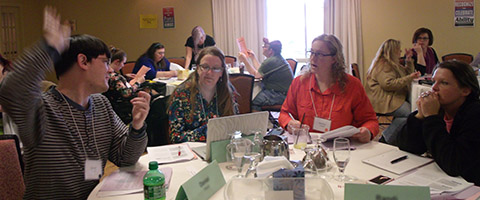
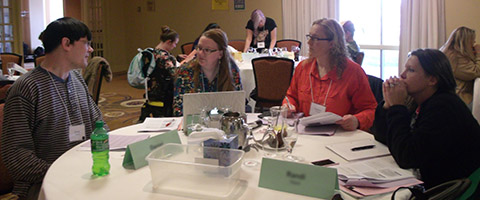
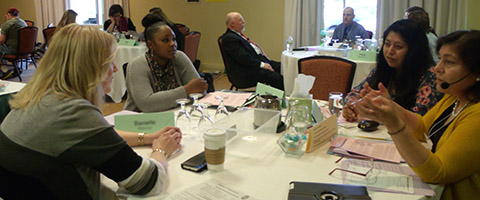
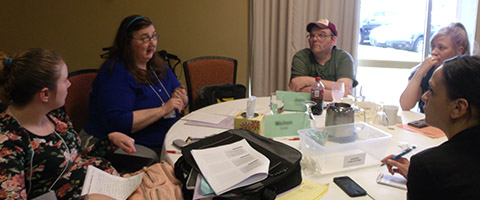
Weekend 8 (May 15-16, 2015)
May 15-16, 2015 was the final weekend session for Class 32 Partners. A highlight was a content rich session on media relations with some very practical tips on how to approach and work with reporters, and practice framing messages and preparing for interviews. A panel of Partners graduates shared how they are continuing to use the knowledge and skills they gained through their learning experience to become more involved in the policymaking process, and what they have done since graduation. A motivational speaker and life coach talked about the value and worth of each individual, pointing out that the contributions each person makes are for the common good of all. A graduation ceremony and grand celebration with family members and friends brought a close to the Partners Class 32 training program year.
